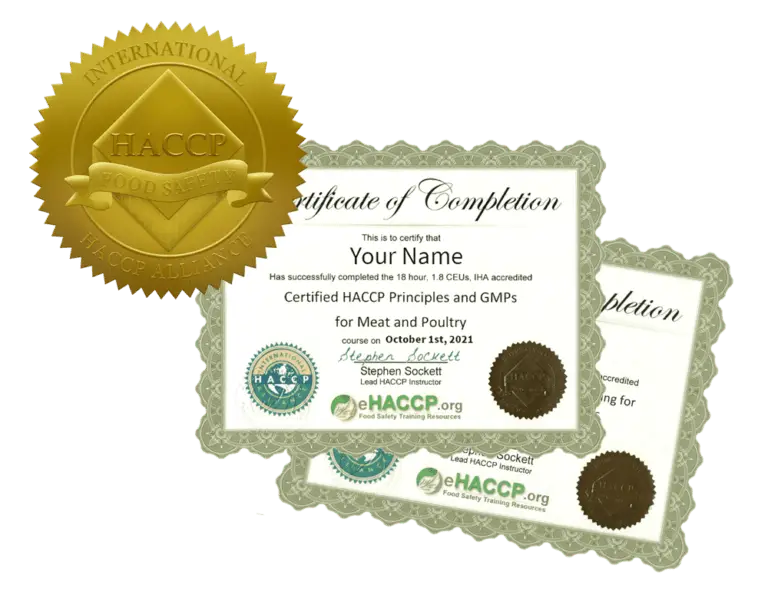In today’s world of sensitive consumer needs for food safety, it is imperative that a food manufacturing facility (and brand) obtain a HACCP certification, at minimum. Implementing a HACCP food safety system and gaining HACCP certification may the gateway to growth in business opportunities (new clients), demonstrating food safety commitment, and solidifying the viability of your food business.
In order to create a HACCP system, the person or people making and signing the HACCP documentation, including GMPS, SOP, SSOPs, monitoring and verification records, etc. Must be HACCP trained and certified.
There are fundamental differences between a personal HACCP certification and a facility HACCP certification that, for many, are not completely clear.
What is HACCP Certification at the facility level?
HACCP Certification is an approval system that recognizes that a food business has developed, documented and implemented systems and procedures in accordance with HACCP. HACCP stands for Hazard Analysis Critical Control point and is an internationally recognized tool to help identify and control food safety hazards that may occur within the food business.
To manage risks in its operations, a food production company must have a food safety management system. A HACCP certification demonstrates your food business’ dedication to adhering to food safety laws. A food business that has a thorough and comprehensive HACCP plan and has completed a rigorous audit by a recognized third-party certification authority is given a HACCP certification. Having a HACCP system in place is the basis of all GFSI schemes i.e. BRC, SQFi, GRMS, FSSSC 22,000, GloablGAP, Global Aquaculture Alliance Seafood, etc.
What is personal HACCP training?
Personal HACCP certification is when a person takes a 16-18-hour long HACCP training course, the course is examinable, the course teaches HACCP, the course is accredited by a well-known entity (like the IHA), the instructor is accredited as a HACCP lead instructor, and the course is already being used by food facilities within your country.
Personal HACCP training can be delivered in a number of ways; classroom, virtual, online-self paced, etc. The price range is vast; free through certain outreach programs, and up to a thousand dollars. When considering what course provider, it’s important to consider your preferred way to learn, your availability, your ability to travel, your budget, etc. Also, consider your provider, are they accredited in HACCP training? There are providers that are not accredited by any ethical entity.
Once the person has achieved HACCP level II certification (Introductory HACCP Course Training is how it’s referred to by the International HACCP Alliance), they can legally create, sign and manage the documentation and systems required by a HACCP plan and system.

